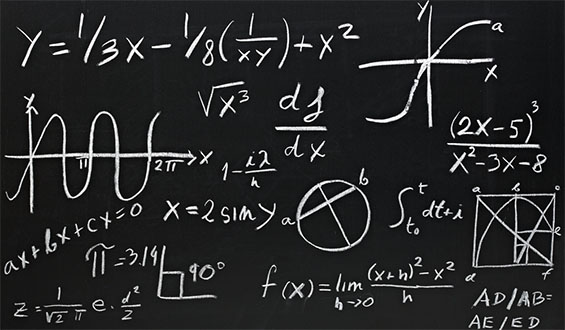
Advice for Choosing Philosophy Courses for Mathematics, Natural Science, and Computer Science Students
Philosophy has at least three important things to offer students who are serious about mathematics, natural science, or computer science.
First, philosophy helps students develop many of the skills necessary for success in mathematics and science including critical thinking, creative problem solving, efficient learning, and effective communication.
Second, philosophy uncovers the theoretical and historical foundations of mathematics and science, including the philosophical insights that led to the development of the scientific method and to the invention of modern digital computers.
Third, philosophy explores questions relevant to math and science, including questions about knowledge, reality, personal identity, and ethical obligation.
Philosophical Skills for Mathematics and Science Students
The most important skills philosophy can help math and science students develop include the following:
Critical thinking:
- Thinking through difficult problems in a logical manner.
- Considering a problem from many different points of view.
- Assessing the quality of different proposals.
- Assessing the quality of evidence.
Creative problem solving:
- Asking the right questions.
- Constructing an argument to support a position.
- Conducting effective investigations.
- Designing experiments.
Efficient Learning:
- Extracting the main point from difficult material.
- Reconstructing an argument from a text.
- Recognizing the difference between theoretical problems and practical problems.
- Learning from mistakes.
- Applying philosophical thinking to everyday living, social issues, career challenges, etc.
Effective communication:
- Expressing ideas in a clear and concise manner.
- Justifying an argument in a logical and persuasive way.
- Making decisions and delegating authority.
Advice for Specific Philosophy Courses for Mathematics and Science Students
While every philosophy course has something to offer students interested in mathematics, natural science, and computer science, the following courses will be especially interesting to such students. Links to more information and a sample syllabus are included for each course.
Philosophy 107: Logic and Reasoning
Questions that may be addressed include:
- How can we avoid fallacious or bad reasoning?
- What is the nature of logical and mathematical proof?
- What are the logical benefits of using formalized languages like SQL, Java, or C++ as opposed to natural languages like English, French, or Mandarin Chinese?
- Can mathematics be reduced to pure logic?
- Does science prove anything?
- What kinds of reasoning are beyond the capabilities of a computer?
Philosophy 206: Early Modern Philosophy
Questions that may be addressed include:
- What are the theoretical and historical foundations of modern science?
- What are the theoretical and historical foundations of infinitesimal calculus?
- What can we really know about the natural world?
- Are humans fundamentally minds or bodies, or somehow both?
- Can the method of geometrical proof be used to solve philosophical problems?
- Are we born like blank slates with no ideas at all, or do we have some ideas already at birth?
- Is the world ultimately composed of tiny particles or of something else?
- Is it possible for an object to exist while no one is there to perceive it?
- Does God exist, and if so, are mathematics and science the study of the language and will of God respectively?
Philosophy 207: 18th Century Philosophy
Questions that may be addressed include:
- What are the challenges of studying humans in a scientific manner?
- Are all ideas reducible to sensory experience?
- What is the nature of cause and effect?
- Is the world “given” to us in experience, or are we partly responsible for “constructing” the world of experience?
Philosophy 208: 19th Century Philosophy
Questions that may be addressed include:
- How can we be free if we are subject to the determined laws of nature like every other natural object?
- Can we really have knowledge of the external world if our understanding of it is partly constructed by us?
Philosophy 209: Philosophy of Science
Questions that may be addressed include:
- What is the difference between science and religion or mythology?
- What distinguishes a scientific theory from a pseudo-scientific theory?
- Should science be focused on explaining the natural world, on solving practical problems, on making successful predictions, or on something else?
- By what methods can we best discover truths about the natural world?
- What is a law of nature?
- Should we believe in unobservable entities like quarks and bosons simply because they are described by currently accepted scientific theories?
- Is science really an “objective” enterprise?
- Are all sciences ultimately reducible to physics?
Philosophy 308: Metaphysics and Mind
Questions that may be addressed include:
- Can the mind be separated from the body?
- Is consciousness possible for a computer or for an artificial neural network?
- Is a mind like a software program that runs on the hardware of a brain, or is it something else?
- Do we have freewill, or are we no freer than a computer?
- If we cannot be sure whether or not computers are conscious, is it wrong to use them for our own benefit?
